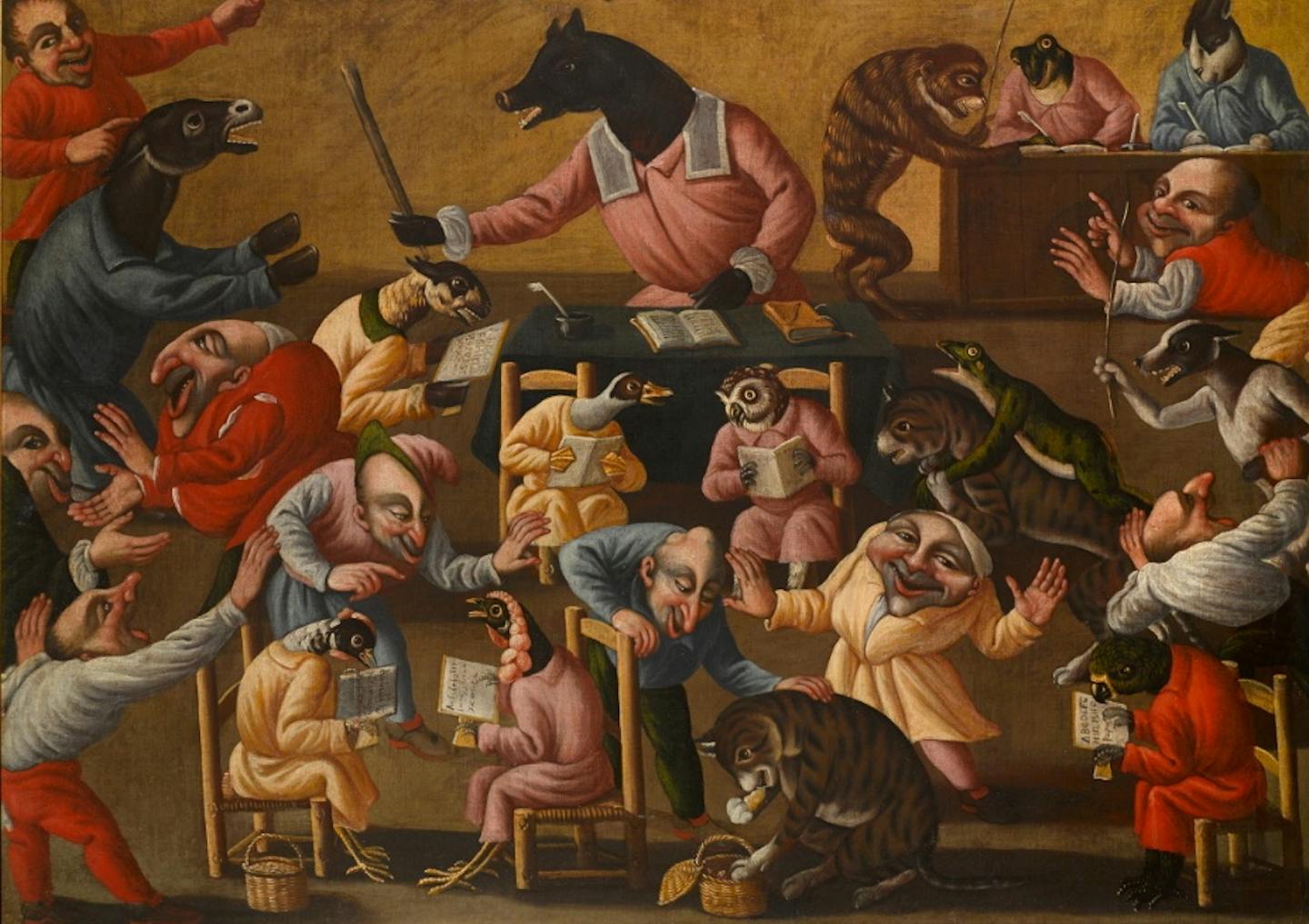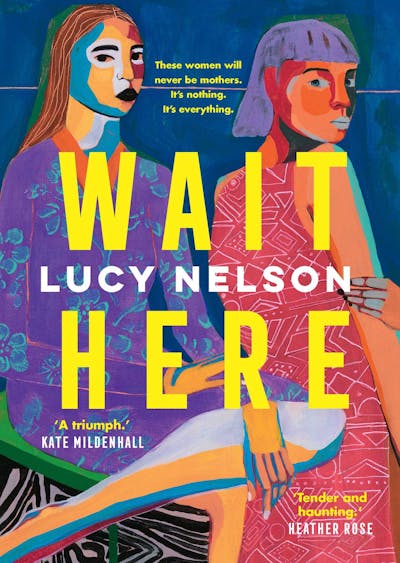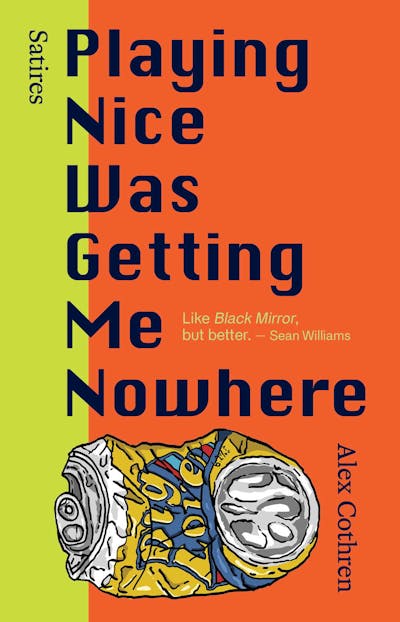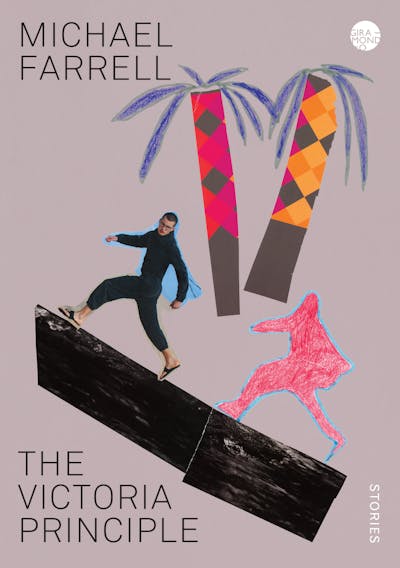
“Short fiction” rather than “short stories” is an apt descriptor of the varied works I have before me.
I have one collection of stories, Wait Here by Lucy Nelson. I have a collection of satires, Playing Nice Was Getting Me Nowhere by Alex Cothren, which is a mix of short stories and what could be called “experimental fiction”. And I have a collection of a few short stories and a lot of experimental fiction, The Victoria Principle by Michael Farrell.
Review: Wait Here – Lucy Nelson (Summit Books); Playing Nice was Getting Me Nowhere – Alex Cothren (Pink Shorts Press); The Victoria Principle – Michael Farrell (Giramondo)
“Short stories” and “short fiction” are both, of course, short. But one has the qualities of a story (characterisation, plot, narrative) and can be fiction or non-fiction, while the other is simply fiction – it didn’t exactly happen – and does not need the structure, or coherence, of a story.
These collections contain texts that could be variously classified as stories or fiction, or both – and they aren’t poetry, which is (usually) short, or novels, which are (usually) longer.
Wait Here is Nelson’s debut collection. These stories are about motherhood – or rather, the absence of motherhood. The characters do not have children for various reasons, yet motherhood looms large in their lives. Except in a few places, it’s a very traditional set of short stories. Nelson’s ability to successfully interpret and illustrate so many different voices across the collection is impressive.
Cothren’s satires are sharp and well-constructed, with some great insights. While I have some doubts about the political utility of satire in 2025, I appreciate the wit in Playing Nice Was Getting Me Nowhere. And I enjoy those simple emotions elicited by good satire: satisfaction at the fleeting moments of comeuppance and dread at the frequent flashes of reality.
The Victoria Principle is another literary debut of sorts. It is not Farrell’s first book – he has eight poetry collections to his credit – but it is his first collection of texts that he has not called poetry. There are a few fairly traditional short stories among some thoroughly experimental bits of fiction. Farrell jumps around in themes and style, and his breathless, sometimes painfully poetic voice is as good as ever, albeit exhausting in places.
Wait Here

Wait Here begins with Chances Are, We Were High as Kites, a story of twin sisters, Shippy and Fern, who are planning Shippy’s suicide. They plan a lunch with friends and wine with a movie. Then they will change into their favourite pyjamas before administering the suicide drug. Shippy is sick and does not want to be a burden on her sister; she does not know that Fern is planning on taking the drug too.
It is a story of the close, non-maternal bonds, in the first instance between siblings and, in a general sense, between friends. The sisters have lived full lives without children.
Other characters in the collection are similarly childless, with lives as childless but not necessarily better or worse. A teenager wonders if her deceased mother’s head has replaced her uterus. Another woman feels useless until she mercifully kills an injured chicken. Another meets her doppelganger – almost identical save for the childlessness. They grapple with their identity as people and the choice of parenthood.
There is little explicit or implicit hope or doom in these stories. Nelson is comfortable with this ambiguity. The decisions to have or not have children are neither good nor bad – they just are. But they are decisions other people are intensely interested in.
In All the World Loves a Baby, a young woman’s child dies on arrival at the premature baby clinic on Coney Island. She stays on at the clinic as a milk maid, still useful in a maternal sense, nursing other premature babies. When she stops producing milk, she works at a nearby diner. She imagines her baby at different stages of life, like a ghost following her around.
She eventually leaves Coney Island, and the ghost of her premature baby disappears. It is a story of women’s perceived utility; as mothers, and, if not, as milk maids. If women can’t be mothers for whatever reason, they are haunted by the spectre of children.

The collection’s title story is brilliant. Nelson’s thesis on motherhood is clearest here. A woman visits a therapist. She arrives early and is unsure of where to wait. She calls the doctor from the office and is invited in. She goes into his office, which is revealed to have a waiting room.
We are not privy at length to the conversations between her and the doctor. Instead, we are given lengthy descriptions of her home life, where she waits for her husband to arrive, making sure to look busy when he does. We are given brief glimpses into conversations with her husband, where he insists she use the time at the doctor’s to “talk about the baby”.
She becomes fixated on the waiting room, where she is allowed to simply wait. Finally, the doctor brings up the topic of “the baby” after she mentions that her husband has been calling. The doctor assures her that her husband has not seen the doctor’s notes. As they share a meaningful silence, she ponders to herself:
There is nothing else to say. The truth is we must be done with it. The lie is that we must talk about it. They think that by talking instead of waiting, I can dissolve all thoughts of a baby whose butter-soft hands might have clutched at my lapels.
The nature of her loss is uncertain. She either lost the child in miscarriage or she or her husband are infertile. What is clear is that, for many women, motherhood is not a simple choice. It can’t be talked through or justified or not or rationalised or not. It is simply a question whose answer is too complex to be answered in the affirmative or the negative. Waiting, rather than answering, seems to be preferable – in this instance, at least.
Nelson’s varied situations across such a diverse set of characters seems to be the best, or even only, way to discuss motherhood. This collection is as complex as the questions that spurred it.
Playing Nice Was Getting Me Nowhere
There is a sense of tragedy to satire in 2025. The form should make the people it targets feel shame, but our post-shame world, where the powerful act with impunity, makes that ambition seem silly.
Does anyone expect Mark Zuckerberg, after viewing a few episodes of Black Mirror, to rewrite the algorithm so that young men aren’t served an AI slurry of Andrew Tate bulldozing Gaza in a furry suit draped in a Kekistani flag? Of course not, but it is fun to see the excesses of the powerful taken to the extreme.

I don’t think Cothren had any grand political ambitions when he wrote this collection. I don’t think he expects the Australian government to read the opening story, Dirk Champion, RFL Talent Scout, and reassess its approaches to refugees.
This story contrasts Australia’s apparently laid back and welcoming nature with our inhumanity to refugees. It imagines a future where refugees compete in an Australian football league for citizenship, deftly melding the larrikinism of Dirk Champion, a classic Australian bloke, with the brutality of our policies toward those seeking asylum.
I also doubt Cothren sought to spur action on global warming when writing Desiree Marley, Coral Restoration Artist, which is told from the perspective of an artist whose job is to repaint bleached coral. The coral has died, but the government has decided to have it painted so it remains a tourist attraction. While it is fun to laugh at the absurdity of such an initiative, it seems a bit obvious at this point: we know our leaders only act when it’s too late.
Cothren’s collection gets interesting when he plays with form, as in Where’s a Good Place for an Adult to Hide?, which is in the form of a Reddit thread, and Royal Commission into the Koala Repopulation Scheme, which is in the form of a transcript of the commission’s proceedings.
In Where’s a Good Place for an Adult to Hide?, a Reddit user posts that question regarding a game of hide and seek. He is inundated with replies from users who have hidden from their family for years. The detachment of Reddit is useful here – parents proudly declare their abandonment of their children and families behind the anonymity of the internet. Just as they want to hide from their responsibilities in real life, they hide their identities online.
Royal Commission into the Koala Repopulation Scheme is surely a nod to Jonathan Swift’s most famous bit of satire, A Modest Proposal. In this story, a senior policy advisor sits before a Royal Commission into a failed scheme. Children under the protection of social services were stitched into Koala costumes to lessen the burden on those social services while seeming to repopulate Koalas, who are about to be declared extinct – in the story and I’m sure in our reality.
It is revealed that the scheme was created under pressure, on a Friday, in a rush because “the boss” (the Minister for the Environment) had a luau and needed a plan by COB.
To read the advisor’s squirming responses to the commissioner’s terse questions is satisfying – and it draws out the detached, lazy, even flippant decision-making process that drives so many policy choices. As in the Reddit thread, Cothren has chosen an apt form to make his point.
I would usually ignore the political claims of satire, which have been assuredly dismissed as serious critique. But in this instance the book’s publisher has written, in the accompanying media release: “Stories like these are particularly important given the rise in hateful rhetoric around the world and in the US especially.”
What do they suppose satire will do to combat hateful rhetoric? If anything, the prevalence and even reliance on satire has led to the sublimation of political energy, so much so that a worrying amount of dissenting political discourse has become either ironic or sarcastic – painfully unserious in a climate that requires serious dissent.
Perhaps they think Zuckerberg simply hasn’t watched enough Black Mirror? I wonder what they think about the recent cancellation of Stephen Colbert’s satirical show in a display of actual political power?

The Victoria Principle
The first three stories in The Victoria Principle are “experiments in autofiction”, according to the author.
Thinking About Ornithophobia and The Invisible Paddocks both focus on the creative process. The former concerns a writer, who is unsure of his feeling toward birds, grappling with a request to edit an issue of a journal, which he has decided should be about a fear of birds. The latter recounts attempts to recall a fractured childhood memory, framed through a conversation between the protagonist and his sister, and an internal attempt to remember and retell the memory at a local library “story telling gig”.
In the collection’s third story, Relational Jesus, the protagonist, Viv, recounts a series of dreams, ponderings and incidents that centre on his struggles with mental health. The stream of consciousness employed blurs the boundaries between dreams and reality.
All three stories are clearly based on aspects of Farrell’s life, with some fiction sprinkled throughout.
These initial works are the only ones in The Victoria Principle with paragraph breaks. The rest are set as justified walls of text that are rarely paragraphed. The way this amplifies the text’s almost-extreme density is my least favourite feature of this collection. Farrell’s semantically saturated writing is dense enough.

The book is divided into three parts. The first contains those first three short stories. The other two parts contain various bits of thoroughly experimental fiction. There’s a mix of stream of consciousness and loose narratives. There’s also a lot of talk of poetry.
In Real Estate Agents Wish Government Would Do More, for example, three real estate agents, one representing “talk poet” David Antin, another “musician poet” John Cage, and the third poetry critic Marjorie Perloff, discuss the housing market, which might be metaphor for poetic practice. I’m not sure where they end up on the topic.
Sadgirl Rereads America, about a manga creation of a PhD student, continues the theme. Sadgirl, who is herself a PhD student, obsesses over her chosen subject:
could she really read poetry, and could she really exert a coherent methodology through an original conceptual framework? Or was it the other way around?
She wonders how much the classification and study of poetry really matter to the poetry itself, or if that’s even a valid question that she is qualified to ask.
Smells Like Nirvana follows the narrator’s inner turmoil at a proposed art project: to boil an egg for the track length of Nirvana’s Smells Like Teen Spirit. He ties himself in mental knots trying to remember the track length – which version? The live version or the studio one? He decides he could use a different track altogether. And what about the size of the egg? Would that matter?
It seems like the narrator is asking after the material facts of the art, while barely asking about the art itself.
“Experimental” is the operative term here. Often this descriptor is wheeled out to describe anything that isn’t a poem, novel or short story – although it is usually used to describe shorter fiction. It’s a term applied to texts that resist categorisation – such as those in Playing Nice Was Getting Me Nowhere – rather than those that are “experimental” in a strict sense.
In contrast, Farrell seems to be conducting a series of actual literary experiments. I think by writing outside his chosen form but maintaining his powerfully poetic voice, he has ended up testing the limits of that voice – intentionally or not.
In addition to the thematic focus on poetry, specifically, and art in general, the prose makes extensive use of poetic techniques: literary references, assonance, consonance, half-rhymes, metaphors, symbolism, even some alliteration – all combined with Farrell’s signature humour.
Farrell has taken these concentrated poetic techniques and injected them in great volume into longer forms to see if, when stretched out, they can maintain some coherence. The kind of semantic saturation that works in poetry can exhaust in longer texts. It is admirable that Farrell has been able to sustain his onslaught of technique for the length of the collection, but it is likely to overwhelm anyone except well-read scholars or dedicated Farrell fans (and there are many). I can’t tell if the experiment has succeeded or failed – I suspect it’s a success, but I’m clearly unqualified to make that call.
This article is republished from The Conversation, a nonprofit, independent news organization bringing you facts and trustworthy analysis to help you make sense of our complex world. It was written by: Sam Ryan, University of Tasmania
Read more:
- Back-to-school transitions can trigger stress and anxiety — these 5 books can help
- The right has filled a void on antisemitism – leaving the Jewish left without a language to talk about it
- Jane Austen was a satirist – why isn’t she treated like one?
Sam Ryan does not work for, consult, own shares in or receive funding from any company or organisation that would benefit from this article, and has disclosed no relevant affiliations beyond their academic appointment.


 The Conversation
The Conversation
 CBS 42
CBS 42 New Jersey Herald
New Jersey Herald The Danville Register & Bee Entertainment
The Danville Register & Bee Entertainment POPSUGAR
POPSUGAR Raw Story
Raw Story Associated Press US News
Associated Press US News America News
America News NBC Sports Soccer
NBC Sports Soccer The Columbian Business
The Columbian Business